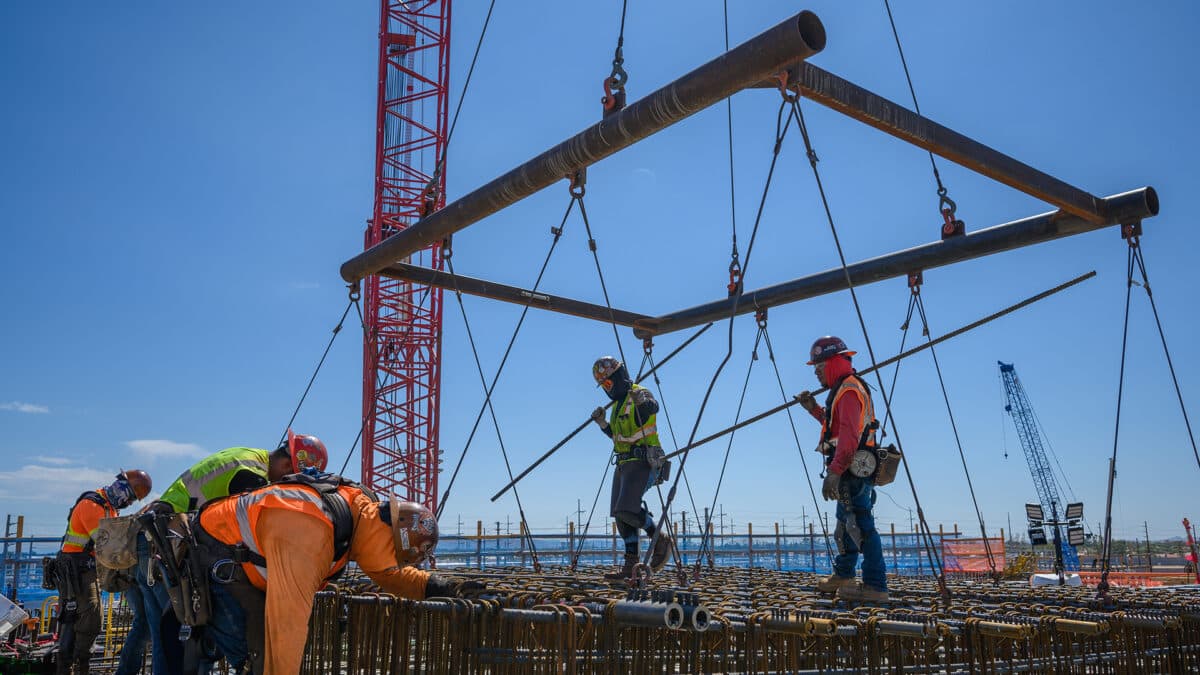Intel pulls the plug on German factory and cuts 25,000 jobs
The news is a major setback for Europe; the construction of the factory was intended to give the European chip industry a strong boost.
Published on July 26, 2025

As editor-in-chief, Aafke oversees all content and events but loves writing herself. She makes complex topics accessible and tells the stories behind technology.
The American company Intel has definitively decided to abandon plans to build a large chip factory in Germany. This is a significant setback for Europe; the construction of the factory was intended to give the European chip industry a substantial boost. Intel is making choices to focus more on investments in the US, while the company is struggling with declining results and competition from Nvidia in the AI market.
Financial challenges
The cancellation of the German factory comes at a time when Intel is struggling with its financial performance. The company reported a second-quarter loss of $2.9 billion, while revenue remained stable compared to the same period last year. These disappointing results have led to a review of the investment strategy, with the new CEO, Lip-Bu Tan, deciding to cut back on planned projects. In addition to Germany, a smaller project in Poland is also being discontinued. These decisions reflect a broader trend within Intel to control costs and improve efficiency, given ongoing competition from companies such as TSMC and Samsung. The decision to reduce investments is driven by the need to strengthen financial discipline and focus on projects with higher returns.
Strategic reorientation at Intel
Lip-Bu Tan, Intel's new CEO, has outlined several strategic pillars to drive the company's growth. These include becoming a more financially disciplined foundry, revitalizing the Intel x86 ecosystem, and refining the company's AI strategy. As part of this reorientation, Intel has decided to consolidate its assembly and testing operations in Costa Rica to larger locations in Vietnam and Malaysia. In addition, Intel plans to scale up its Intel 18A and Intel 14A process technologies, with investments in Intel 14A based on confirmed customer commitments. These measures are designed to sharpen focus and direct resources to areas with the most significant growth potential. Tan emphasized that Intel will focus on emerging AI workloads and then work backward to design software, systems, and silicon that deliver the best results for customers.
Impact on employment
In addition to scrapping projects and restructuring activities, CEO Lip-Bu Tan announced that Intel will reduce its workforce by approximately 15% by the end of 2025. This means that the company will end the year with approximately 75,000 employees worldwide. Intel has already implemented a significant number of staff reductions in the second quarter of 2025, streamlining the number of management layers by approximately 50%. These measures are designed to enhance operational efficiency and lower costs. Despite the staff reductions, Intel plans to implement a “return-to-office” policy in September 2025. This combination of cost-saving measures and strategic reorientation should enable Intel to compete in a rapidly changing market.
Europe's ambitions
The cancellation of the Intel factory is a setback for the broader European strategy to bring more chip production to the continent. During the coronavirus pandemic, a significant chip shortage emerged, highlighting the painful dependence of Europe and the US on Asian production, particularly in Taiwan and China. The European Commission hoped that the so-called Chips Act would enable the establishment of new production sites, allowing EU countries to use subsidies to make the creation of new factories more attractive. Germany was prepared to provide up to €10 billion in subsidies to realise the Intel factory, a significant portion of the total project cost of €30 billion. The collapse of the Intel deal means that the EU currently has no prospect of establishing a production site for highly advanced chips, while TSMC is still building a factory in Germany that will focus on less advanced chips for the automotive industry.
The future of Intel
Despite recent setbacks, Intel remains optimistic about the future. CEO Lip-Bu Tan emphasized that the company has no time to lose and must act with urgency, discipline, and focus. He considers the second quarter of 2025 to be the first step in the right direction and is confident in Intel's ability to succeed. Intel will focus on building a new Intel for a new era, with an emphasis on financial discipline, strategic investments, and capitalizing on opportunities in the AI market. In the coming months, Intel will share more details about its plans and strategies to achieve these goals. The challenge for Intel is to maintain a competitive edge and secure a leading position in the chip industry, while also controlling costs and enhancing efficiency.
